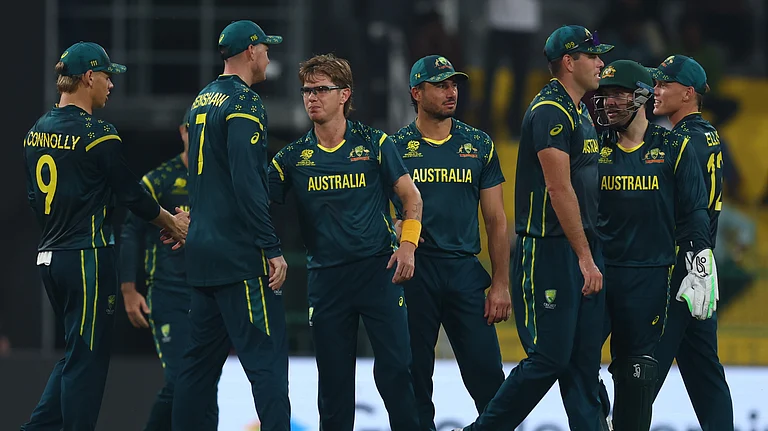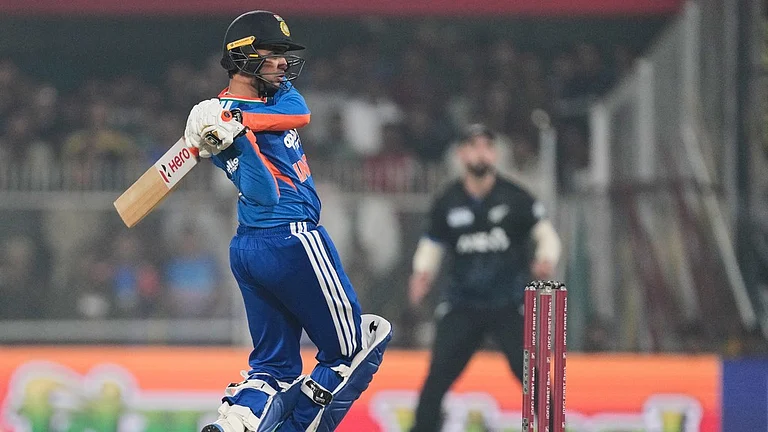
Chanchalapathi Dasa, the Vice Chairman of The Akshaya Patra Foundation, shares the NGO’s two decades of endeavour to make mid-day meals a joyful and nourishing experience for lakhs of children across the country without sacrificing taste or health benefits.
Lola Nayar: Akshaya Patra Foundation is targeting to feed 66,000 children in Delhi every day. How many children are you serving mid-day meals to across the country and what has been the outcome of your efforts?
Chanchalapathi Dasa: We are feeding about 18.7 lakh children every day across the country. We have been part of the government's mid-day meal programme for the last 20 years. The first and the foremost objective of Akshaya Patra's mid-day meal programme is to address classroom hunger. The government is spending crores of rupees on infrastructure, teacher’s salary, uniforms, textbooks, and all of that. If a child is hungry in the classroom, he will not be able to pay attention to the learning. So this intervention of providing a meal, this additional investment, will make all other investments the government is making for the education of a child more productive. We see this as a very strategic intervention in this whole system. By addressing classroom hunger, we are trying to ensure that children’s learning experience becomes more meaningful.
The second thing is, there have been sufficient number of studies and surveys done that show that a meal in the school is an incentive for the family to send the child to the school. This is especially true for girls as otherwise, the poor families in our country who send their children to the government schools, usually think that the girl should take care of the other siblings, and that education is a wasteful exercise. But when they know that there is a meal being provided in the school, the families tend to send their children to the school. We have seen that enrolment has gone up, attendance has improved and dropout in higher classes is also lower, especially when parents know there is a meal in the school. It acts as an incentive not to send them to earn a living.
We work with the government, so it's a public-private partnership programme. Our entire network, across more than 52 locations in 12 states, feeding 18.7 lakh children is actually a nutritional support programme that we have created in the country. Because of the systems and the organisation, if we want to do any improvement of nutrition or any other aspect in a matter of weeks, we will be able to reach out to over 18 lakh children in the country. This is another Important strength of this program. So, what began as a hunger alleviation programme, is now actually a nutrition supplementing programme in the country.
LN: Have you done any nutritional impact assessment of your programme?
CD: We have done nutritional impact assessments not only ourselves but also by third-party organisations, medical colleges through their community medicine departments, and so on. All these studies have very well established that the nutritional profile of children has improved in about six months of receiving the meals. So we see this as a very important programme. Children have to be educated. Education is the most effective way of addressing poverty in our country. And so, if children are well-fed and well-educated, we will have a different country.

School children enjoying nourishing mid-day meal
LN:Over the last 20 years, what have been the changes you have introduced in your meals to make it more nutritious?
CD: Basically, the programme also has been evolving. Initially our understanding of the programme was that it was just to fill the bellies of children. But now we are conscious that the meals have to have a certain calorific value. The meals have to deliver a certain quantity of protein. It also needs to have a certain amount of micro-nutrients, folic acid, iodine (for which we use iodised salt), etc. Iodine deficiency and vitamin D deficiencies are all very, very prevalent deficiencies in our country, so we address all of that. And to do that, we ensure that we have the right mix of vegetables, right mix of dal, etc. There has to be not only nutritious food, but also something known as bio-accessibility. If the food has certain kind of inputs or ingredients in it, the body's ability to absorb these micro-nutrients and the nutrition is enhanced. We ensure that with the use of ingredients like jeera or cumin seeds, lime or ginger, all of which increases and enhances the body's ability to absorb micronutrients. We pay attention not only to the calorific, the protein, the micronutrients, but also those ingredients which enhance bio-accessibility.
We have done some pilot programmes in different parts of the country, where we introduced millets, because they are very good from the nutritional point of view. Use of millets is also good for the farmers because the yield is much higher. In addition, in many places where other grains don't grow, millets thrive, as they require very little water. Millets are good ecologically for our earth. Given its desirability, we have made a recommendation to the Ministry of Human Resource Development, Government of India, to introduce millets as part of the mid-day meal programme. We have made another representation, to introduce dairy products in the mid-day meal programmes, as they are important for children, given that they provide calcium and other nutrients. We have been working with the Central and state governments to enhance this programme, so that children of our country can benefit from good meals and we will have a very, very different country tomorrow.
LN: Do you have different mid-day meal menus for different states?
CD: We have different menus for different states and also within the same state, according to regional preferences. We respect the cultural preferences of children. For instance, in Gujarat we give Gujarati meals, while in Andhra Pradesh we serve local food, but in every case we ensure that it's a balanced meal. Another fortunate thing about our country is that traditionally what is accepted locally is more or less a good meal as they address all the nutritional requirements of the child, and so we pay attention. Nevertheless, we also want to strive to address the palatal preferences of the children. That is how we plan and have served the mid-day meals for the last two decades.

Vice President Venkaiah Naidu presenting the Outlook POSHAN award 2019 to Chanchalapathi Dasa, Vice Chairman of The Akshaya Patra Foundation. Also seen are Indranil Roy, CEO, Outlook Publishing, and Ruben Banerjee, Editor-in-Chief, Outlook Magazine.





















.jpg?w=200&auto=format%2Ccompress&fit=max)




